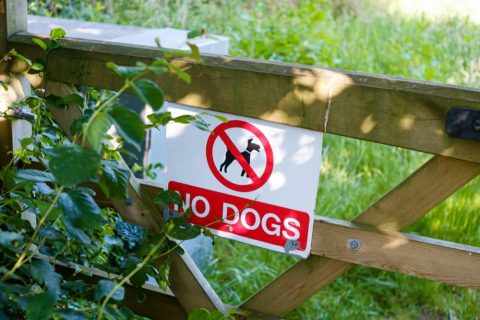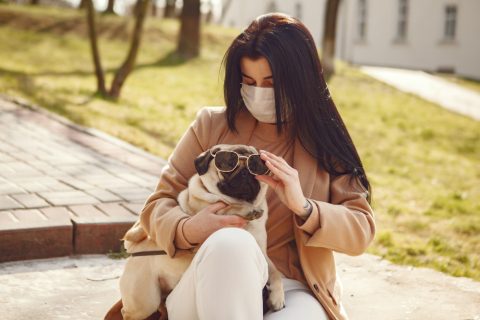A dog’s wet nose is often considered a sign of good health, but what happens when it turns into a constant drip? If you’ve noticed your pup sneezing or sniffling more than usual, you might be wondering if it’s just a mild irritant or something more concerning. Understanding why your dog’s nose is runny can help you determine whether a vet visit is necessary or if it’s something you can manage at home.
Contents
Common Causes of a Runny Nose in Dogs
Dogs use their noses to explore the world, which means they’re constantly exposed to allergens, dust, and other potential irritants. A runny nose can result from many different sources, some harmless and others requiring attention.
Environmental Allergies
Pollen, mold spores, dust mites, and even perfumes or cleaning products can trigger allergic reactions in dogs. If your dog tends to get a runny nose during specific times of the year, allergies might be the cause. Accompanying signs can include sneezing, watery eyes, and itching.
Irritants and Foreign Objects
Curious pups are notorious for sniffing everything. Sometimes, they inhale tiny particles like grass seeds or small debris, which can irritate their nasal passages. If only one nostril is affected or there’s excessive sneezing, a foreign object might be to blame.
Infections
Viral or bacterial infections, such as kennel cough or canine influenza, often cause nasal discharge. These infections are typically accompanied by other symptoms like coughing, lethargy, and reduced appetite. If the discharge is yellow, green, or foul-smelling, infection is likely.
Nasal Mites
These microscopic parasites can cause serious discomfort. Nasal mites typically lead to sneezing, nasal discharge, and even nosebleeds. Diagnosis requires a vet, but it’s treatable with proper medication.
What the Discharge Color Tells You
The color and consistency of your dog’s nasal discharge can provide valuable clues about their health:
- Clear: Generally harmless and could be due to excitement, minor irritants, or allergies.
- Cloudy, Yellow, or Green: Indicates possible infection or inflammation.
- Bloody: Could result from trauma, a foreign object, tumors, or serious infection. Seek veterinary help immediately.
- Thick or Sticky: Suggests a bacterial component and may need antibiotics.
When You Should Be Concerned
Not all runny noses warrant a trip to the vet, but knowing when to seek professional help can save your dog from discomfort or worsening conditions.
Watch for These Red Flags:
- Nasal discharge lasting more than a few days
- Discharge with an odor
- Accompanying symptoms like coughing, difficulty breathing, lethargy, or loss of appetite
- Bleeding from the nose
- Only one nostril producing discharge (suggesting a blockage or foreign body)
If your dog shows any of these signs, it’s time to consult with a veterinarian.

Seasonal Allergies: A Georgia Dog Owner’s Reality
For those living in Georgia, seasonal changes can be especially tough on sensitive dogs. Spring and fall bring surges of pollen, which can lead to allergy flare-ups. If your dog experiences a runny nose alongside scratching, head shaking, or red eyes, they may be reacting to the local environment.
A vet can perform allergy tests or recommend antihistamines and lifestyle adjustments to minimize discomfort.
How to Prevent Nasal Issues
While you can’t control every sniff your dog takes, some preventive measures can go a long way:
- Clean Living Areas: Reduce indoor dust, avoid using strong-smelling cleaners, and vacuum frequently.
- Avoid High-Pollen Areas: During allergy season, limit walks in grassy fields or wooded trails.
- Hydration: Encourage water intake, as it helps thin out mucus and keeps nasal passages moist.
- Routine Checkups: Regular vet visits help detect and manage potential issues early.
Home Care for Mild Cases
If your dog’s nose is only mildly runny and they’re otherwise acting normal, you can try some at-home remedies:
- Use a Humidifier: Dry air, especially in heated homes during winter, can dry out nasal tissues.
- Gently Wipe the Nose: Use a soft, damp cloth to remove discharge and keep the area clean.
- Monitor Their Behavior: Look for changes in appetite, breathing, or activity.
Avoid giving your dog human cold medications without veterinary approval, as many over-the-counter products can be toxic to pets.
Final Thoughts
A runny nose in dogs is often nothing to worry about, but being attentive can make a big difference. By watching the discharge color, noting any additional symptoms, and considering environmental triggers like Georgia’s allergy-prone seasons, you can better care for your furry friend.
If in doubt, always consult your vet. It’s better to rule out serious issues early than to wait until they escalate. Your dog counts on you to notice the little things—and that includes a drippy nose!








